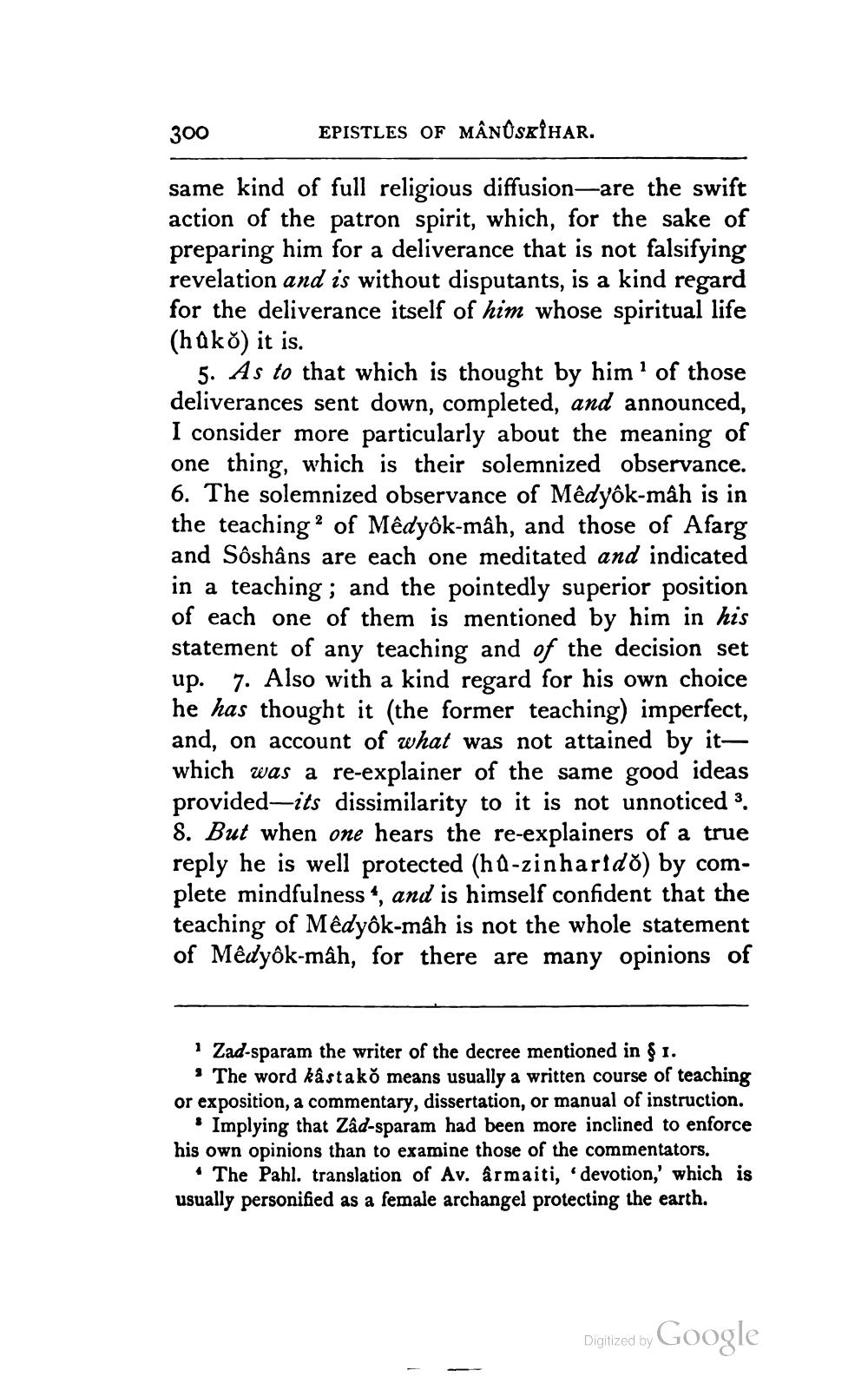________________
300
EPISTLES OF MÂNUSKIHAR.
same kind of full religious diffusion-are the swift action of the patron spirit, which, for the sake of preparing him for a deliverance that is not falsifying revelation and is without disputants, is a kind regard for the deliverance itself of him whose spiritual life (hûkŎ) it is.
5. As to that which is thought by him1 of those deliverances sent down, completed, and announced, I consider more particularly about the meaning of one thing, which is their solemnized observance. 6. The solemnized observance of Mêdyôk-mâh is in the teaching of Mêdyôk-mâh, and those of Afarg and Sôshâns are each one meditated and indicated in a teaching; and the pointedly superior position of each one of them is mentioned by him in his statement of any teaching and of the decision set up. 7. Also with a kind regard for his own choice he has thought it (the former teaching) imperfect, and, on account of what was not attained by it— which was a re-explainer of the same good ideas provided its dissimilarity to it is not unnoticed 3. 8. But when one hears the re-explainers of a true reply he is well protected (ha-zinhartdo) by complete mindfulness, and is himself confident that the teaching of Mêdyôk-mâh is not the whole statement of Mêdyôk-mâh, for there are many opinions of
1 Zad-sparam the writer of the decree mentioned in § 1.
The word kâstako means usually a written course of teaching or exposition, a commentary, dissertation, or manual of instruction. • Implying that Zâd-sparam had been more inclined to enforce his own opinions than to examine those of the commentators.
The Pahl. translation of Av. ârmaiti, 'devotion,' which is usually personified as a female archangel protecting the earth.
Digized by Google




